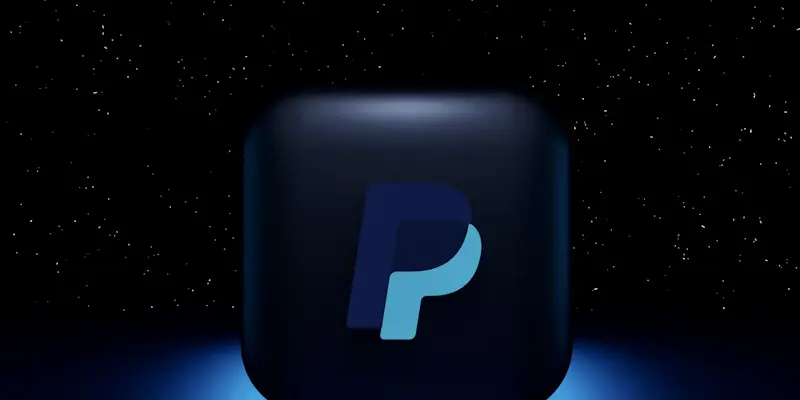PayPal’s recent integration of Chainlink (LINK) and Solana (SOL) into its cryptocurrency offerings marks a significant milestone in the company’s evolving strategy to dominate the digital currency landscape. According to May Zabaneh, Vice President of Product, Blockchain, Crypto, and Digital Currencies at PayPal, the move was a direct response to increasing user demand for more diverse cryptocurrency options. The addition of LINK and SOL is viewed as a part of PayPal’s broader mission to revolutionize payments and provide its users with greater flexibility and choice in their financial transactions.
The Integration of Chainlink and Solana
Chainlink is renowned for its extensive adoption in enabling advanced blockchain applications through data, compute, and cross-chain interoperability. This robust platform supports a variety of decentralized applications (dApps) by providing the necessary tools to interact with external data sources and systems securely. On the other hand, Solana stands out as a leading blockchain platform that supports numerous decentralized applications and crypto projects. Known for its high throughput and low transaction costs, Solana has quickly gained traction within the decentralized finance (DeFi) space, offering users the ability to engage in a wide range of financial activities, including payments and lending services.The integration of these two prominent cryptocurrencies into PayPal’s platform illustrates PayPal’s commitment to staying ahead of the curve within the competitive digital currency market. By offering LINK and SOL to its user base, PayPal is not only diversifying its cryptocurrency portfolio but also capitalizing on the strengths of these technologies to meet the diverse needs and preferences of its customers. This expansion is indicative of PayPal’s long-term vision to embed blockchain technology deeper into its core services, ultimately enhancing user engagement and adoption of digital currencies.
PayPal’s Broader Financial Services and Commitments
Beyond expanding its cryptocurrency offerings, PayPal continues to play a pivotal role in the financial ecosystem, particularly in supporting small businesses.As of March 26, 2025, PayPal has surpassed the $30 billion mark in small business loans globally, a significant achievement reflecting the company’s commitment to fostering entrepreneurial growth. Since its inception in 2013, PayPal has provided over 1.4 million loans and cash advances to more than 420,000 businesses worldwide. These efforts underscore the importance of small businesses, which contribute more than 43 percent to the U.S. GDP and nearly 40 percent to the private sector.PayPal’s financing solutions, including the PayPal Business Loan and PayPal Working Capital, are tailored to meet the unique needs of small businesses. These services assist in areas such as inventory stocking, employee hiring, payroll, and overall business growth. By filling critical capital gaps, PayPal helps small business owners sustain and expand their operations, contributing to a more vibrant and resilient economy. This multifaceted approach to financial services showcases PayPal’s dedication to addressing varying market demands while promoting financial inclusivity.
A Comprehensive Approach to Financial Innovation
The integration of Chainlink and Solana, combined with continued support for small business financing, underscores PayPal’s comprehensive approach to financial innovation. By expanding its cryptocurrency offerings, PayPal aligns itself with the evolving landscape of digital currencies, ensuring its users have access to leading and emerging technologies.This strategic positioning not only satisfies current market trends but also anticipates future developments in blockchain and decentralized finance.
Moreover, PayPal’s robust small business financing services demonstrate its commitment to providing essential financial support to the backbone of the economy. By addressing a wide range of financial needs, PayPal fosters an inclusive financial ecosystem where both individual users and small business owners can thrive.This holistic strategy illustrates PayPal’s adeptness at navigating the complex interplay between emerging technologies and traditional financial services, ensuring its continued relevance and leadership in the financial sector.
Key Takeaways and Future Considerations
PayPal’s recent incorporation of Chainlink (LINK) and Solana (SOL) into its cryptocurrency lineup signifies a crucial step in its strategy to dominate the digital currency sphere. This update enables both PayPal and Venmo users to buy, hold, sell, and transfer these cryptocurrencies within their accounts.May Zabaneh, PayPal’s Vice President of Product for Blockchain, Crypto, and Digital Currencies, stated that this integration was driven by rising user demand for a wider array of cryptocurrency options. The inclusion of LINK and SOL aligns with PayPal’s broader mission to revolutionize the payment landscape, providing users with more flexibility and choices in handling their financial transactions. The move is part of PayPal’s continued commitment to evolving its services in line with market trends, ensuring users have access to the latest in digital currency technology and options, further cementing its role as a leader in financial innovation.

